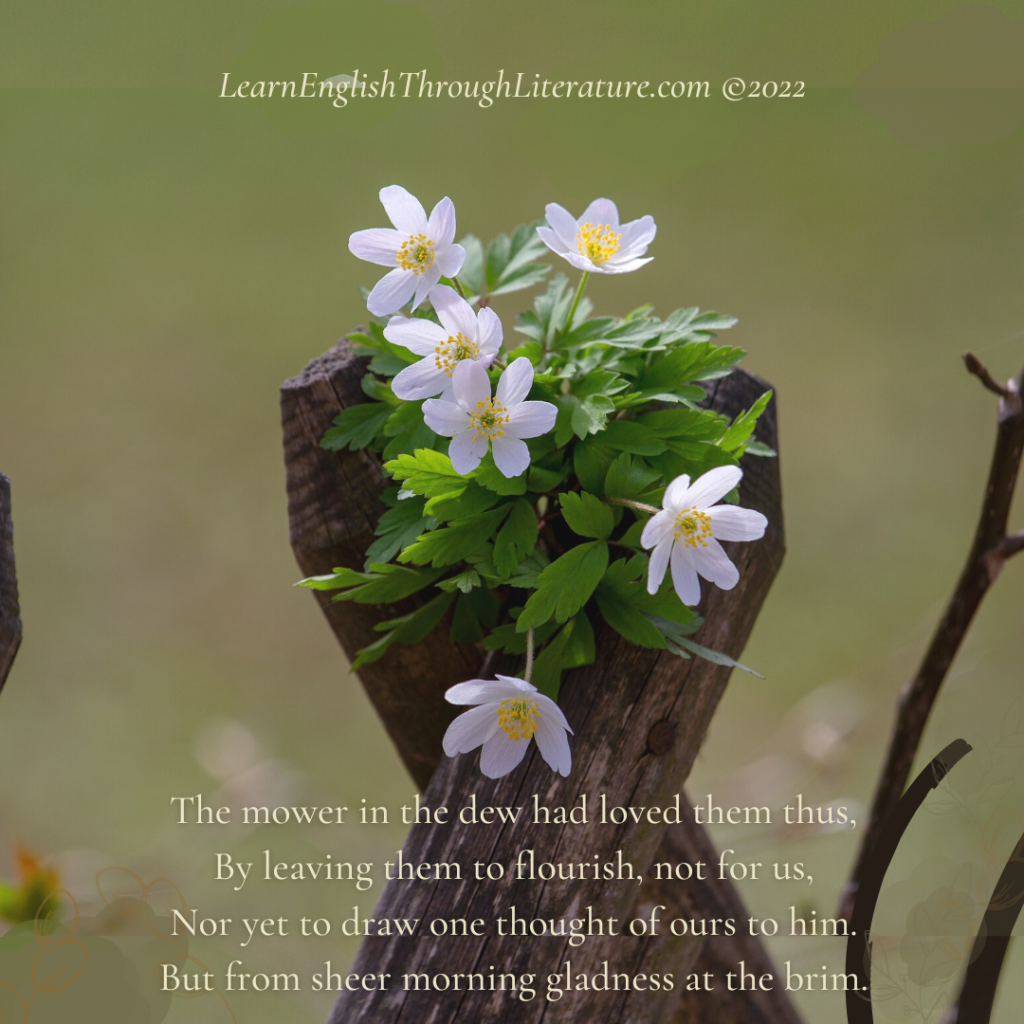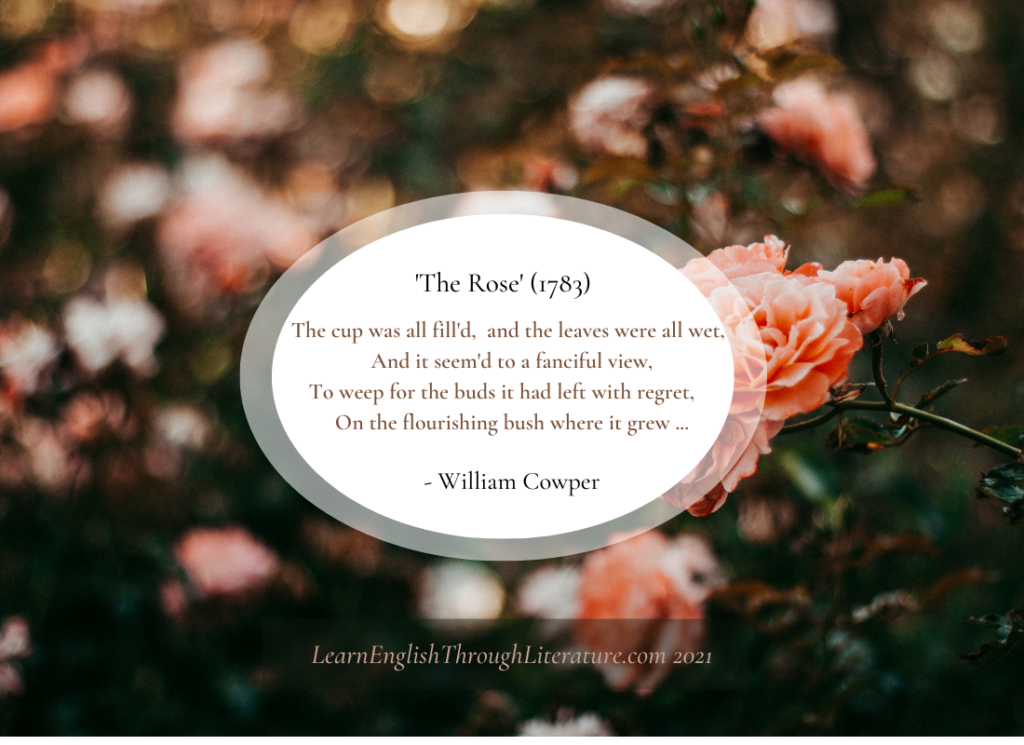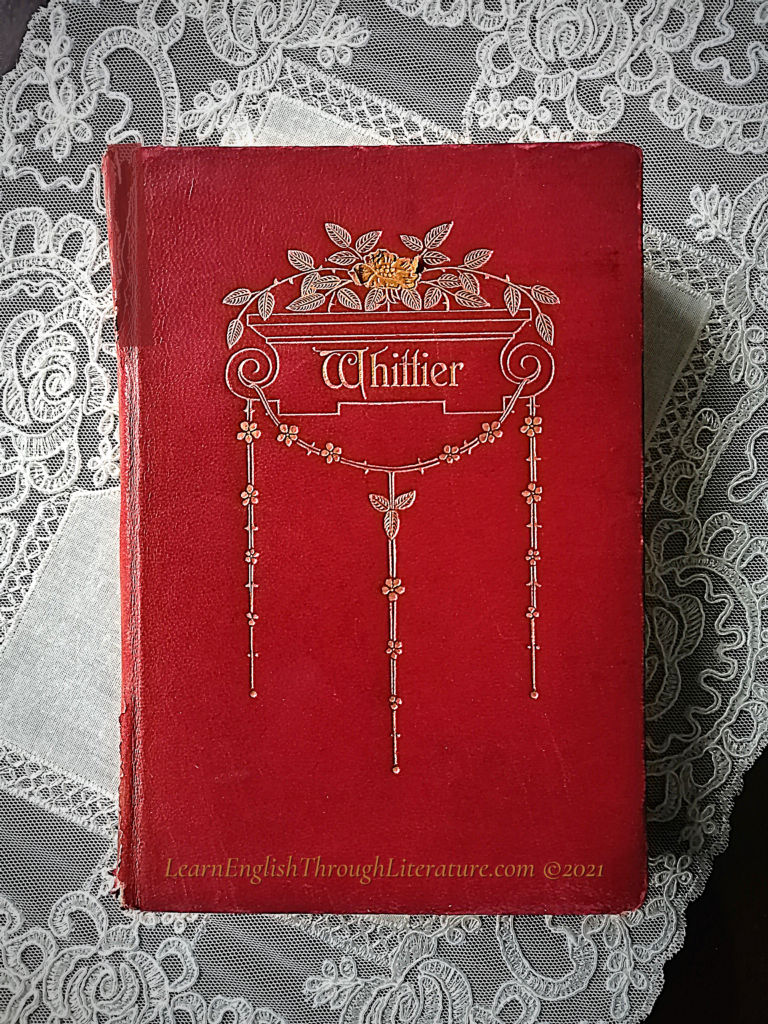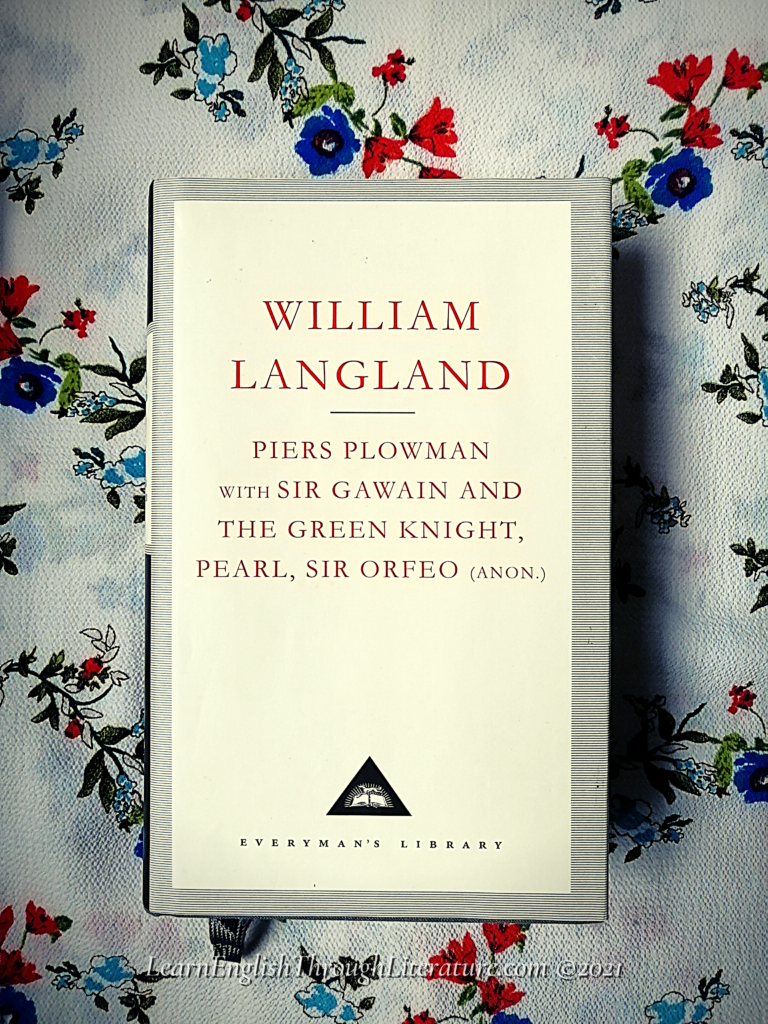Lesson #282: Reflecting on Work, Empathy, and Nature in Robert Frost’s ‘The Tuft of Flowers’(1915)
It has been quite a long time since we enjoyed a poem together. One that comes to mind from time to time, and which seems so appropriate for the day (being his birthday) is the American poet Robert Frost’s poem, ‘A Tuft of Flowers’. 🎕 Let’s take a step away from grammar today and enjoy […]




